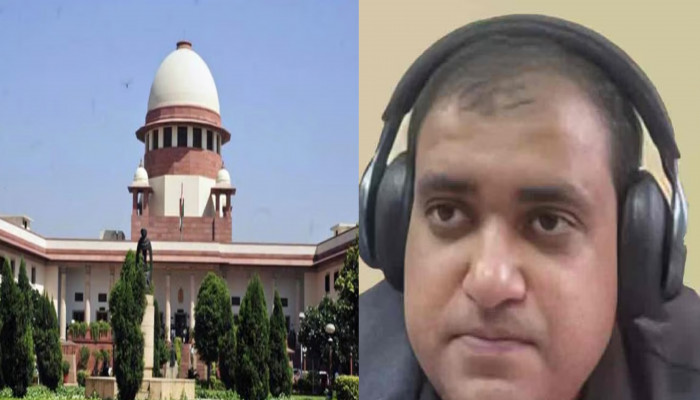SC issues 8 key guidelines on alimony amount post-Bengaluru techie death
- In Reports
- 12:04 PM, Dec 12, 2024
- Myind Staff
The Supreme Court has set out eight important factors to decide the amount of permanent alimony in divorce cases. This decision comes in the wake of a tragic incident involving a Bengaluru-based software engineer, who accused his wife and in-laws of harassment and extortion before ending his life.
An SC bench comprised of Justices Vikram Nath and Prasanna B. Varale ordered Praveen Kumar Jain to pay his wife Rs 5 crore in alimony during the hearing of his and Anju Jain's divorce case. In its decision on Tuesday, the court established an eight-point alimony assessment guideline.
Under the Hindu Marriage Act, the court in this instance stated that the marriage had "irretrievably broken down." According to a study by LiveLaw, it concluded that the only matter that needed to be resolved was figuring out the wife's permanent alimony. The Supreme Court listed the following eight factors:
1. The social and financial status of the parties
2. The reasonable needs of the wife and dependent children
3. The qualifications and employment status of both parties
4. The applicant’s independent income or assets
5. The standard of living enjoyed by the wife in the matrimonial home
6. Career sacrifices made by either spouse for family responsibilities
7. Litigation expenses for a non-working wife
8. The husband’s financial capacity, income, and existing liabilities
However, the top court made it clear that these criteria are meant to be used as guides rather than strict rules when deciding alimony.
The Supreme Court directed Praveen Kumar Jain to allocate Rs 1 crore for the financial security of his adult son. The couple had lived together for six years but spent the following two decades apart. Their marriage was marked by allegations of incompatibility and strained relations. Praveen accused Anju of being overly sensitive and neglecting his family, while Anju claimed that Praveen's behaviour towards her was problematic. The long separation between the couple made it impossible for them to fulfil their marital duties, so the court decided that their relationship had completely ended. As a result, the divorce was granted, along with certain financial arrangements.
Meanwhile, the Supreme Court’s guidelines and the Jain case ruling came at the same time as public anger over the suicide of Atul Subhash, a 34-year-old engineer from Bengaluru. Subhash died by suicide on December 9, leaving behind a video and a 24-page note in which he accused his wife, Nikita, and her family of mistreating him. In the note, Subhash described years of legal battles in a family court in Uttar Pradesh and claimed that Nikita filed false charges against him, including dowry demands, unnatural sex, and murder. He also mentioned her requests for large maintenance payments and her behaviour during the court proceedings. After being discovered dead in his Bengaluru residence, Subhash, who was originally from Uttar Pradesh, sparked intense discussion about marital problems and court cases.







Comments